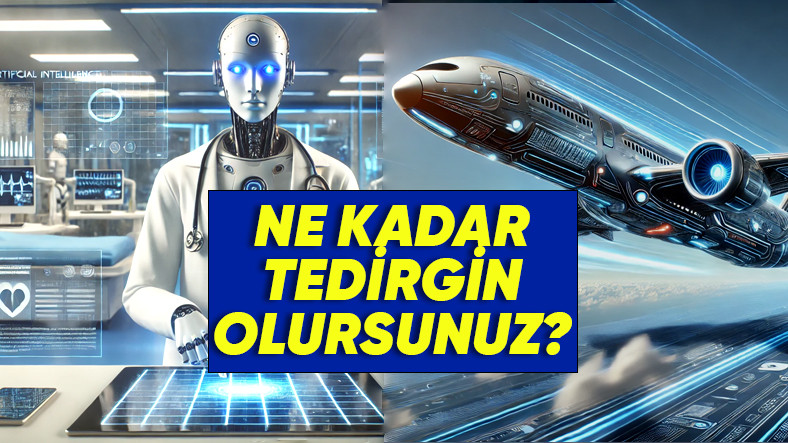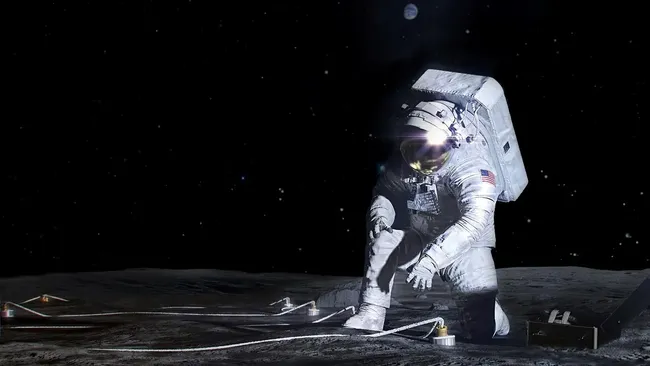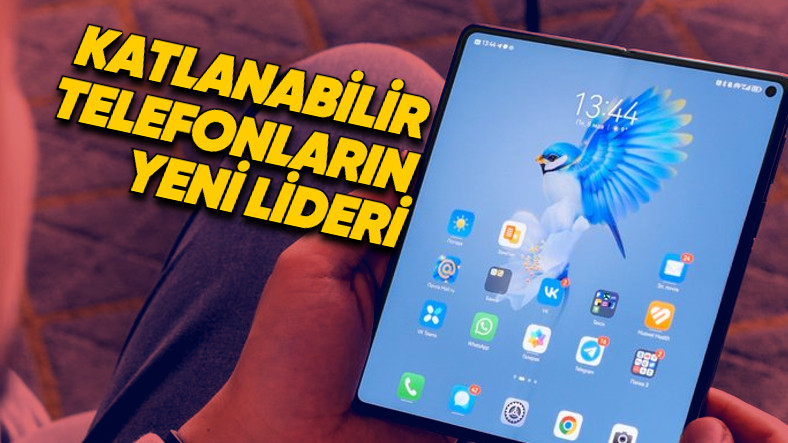If we look at the common point of the two issues “Human defense mechanism Will it be turned off by artificial intelligence and will we create this sense of trust?
a lot “No, I don’t trust it.” We can’t say that Because we are faced with a technology that improves itself every moment and is more present in our lives every day. Let’s see what your thoughts will be when you read it.
Would you board a plane that flies with artificial intelligence?

Imagine: there is no one in the pilot’s seat; there is only an intelligent system and this system controls every moment of the flight. This idea is both exciting and a little bit scary It may seem like it.
Let’s say this first though: AI-enabled aircraft actually already exist today. Autopilot systemsArtificial intelligence is used in areas such as air traffic control and emergency intervention.
Boeing and Airbus Major aircraft manufacturers such as Arçelik argue that artificial intelligence has great potential to increase aircraft safety and minimize human error.
For example, artificial intelligence can immediately detect dangerous weather conditions that may suddenly occur during the flight and take the necessary precautions. Although the experience and reflexes of human pilots are limited, artificial intelligence can do this immediately can evaluate thousands of different scenarios and can make the safest decision.
The main question here is: can we as humans have such trust in artificial intelligence?

Psychologically, if you trust the decisions someone makes the comfort we feelit can be difficult to trust a machine’s decisions.
Maybe we are right because artificial intelligence; on emotions, intuition or has no instinct. As humans, however, these characteristics make us feel safe. How can we overcome this insecurity?
The path to gaining trust is built over time through successes and experiences. Aircraft powered by artificial intelligenceAs we complete numerous successful flights, we believe our confidence in this technology will grow.
However, it is possible that this process will still cause hesitation among people. Especially the first a serious accident or in case of a mistake, this trust will be destroyed forever. So it seems that we have a little more time for artificial intelligence, especially when it comes to airplanes and strangers.
Another question: would you hand yourself over to artificial intelligence doctors?

Artificial intelligence is rapidly becoming widespread in healthcare, let’s accept that. to make a diagnosisMany medical processes, such as treatment planning and patient monitoring, are now being implemented.
Let’s give an example of this. For example Watson from IBM The so-called artificial intelligence system continuously examines the latest research used in cancer treatment and makes treatment recommendations to doctors.
The benefits of developments in this area are enormous. Artificial intelligence can reduce the workload of doctors and prevent diseases to be diagnosed early can provide personalized treatment options.
However, people feel completely to the doctor for artificial intelligence How they approach the idea of delivery is another important question.
For many people, a personal meeting with a doctor brings trust and empathy.

What do we expect when we go to the doctor? Besides healing emotional support And isn’t it a concept?
As we said, artificial intelligence can technically make correct diagnoses and treatment recommendations, but in a human way empathy and emotional understanding How are you going to present it?
This is especially true for chronic diseases or with deadly diseases It leaves a huge psychological void for struggling patients.
There is also this: artificial intelligence systems have limited ability to make ethical decisions. For example, an artificial intelligence It is unlikely that it will save lives He/she may choose a more standard approach instead of a treatment recommendation that already exists. Such situations can of course shake people’s confidence.
In summary, trusting doctors in the field of artificial intelligence is more success stories and it appears possible as people’s awareness of the benefits of such systems increases.
What do you think? Would you confidently entrust yourself to an AI pilot or doctor?
Sources: Science Direct, Forbes, National Library of Medicine, Aiola, Jstor
Our other content related to artificial intelligence:
Follow Webtekno on X and don’t miss the news

















